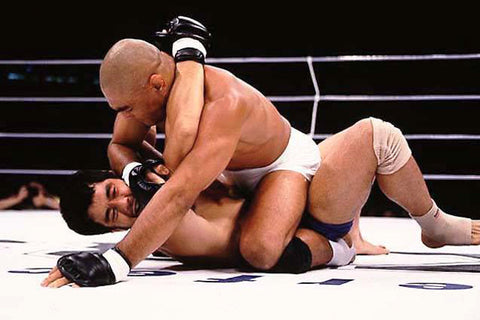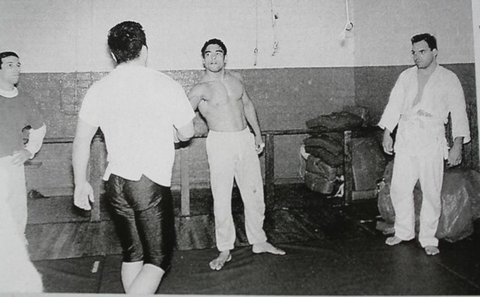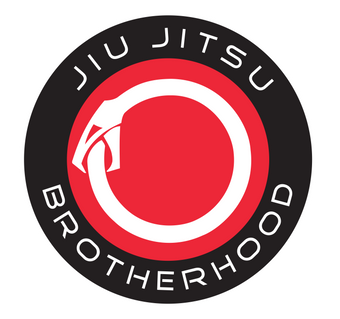It’s usually difficult to say exactly when a legend is born. But, for the 15,000 fans at the Nippon Budokan Hall on April 20, 1995, it wasn’t hard to figure out. At the end of Vale Tudo Japan, one man remained standing after three brutal fights. He had earned a place in the record books of his sport and cemented his legacy in the hearts of the Japanese people. Rickson Gracie was at that moment in time, the greatest fighter on the planet. This was no underdog story, sure to tug at the heartstrings of those in attendance. The Brazilian Jiu-Jitsu master was supposed to win. After all, he had decimated the field the year before in the inaugural event. What made this victory special, and resonated with fans all over the world, was the way Rickson Gracie claimed his prize.
It was the culmination of hard work and strategic planning. To spread their message of leverage over brawn and technique over athleticism, the Gracie family had taken their barnstorming tradition to global levels. To stake their claim as the best fighting style in the world they needed a dominant champion in every major market. One who not only shone in combat, but exemplified the discipline, toughness, and spirit of the Gracie way. In only six fights spread over two tournaments, Rickson had delivered. He was the king of combat sports and a living ambassador for Gracie Jiu-Jitsu. Despite never facing the best of his contemporaries, he had achieved his sport’s highest honor. He was the greatest of all time with a perfect record of 8-0. The world should have known this was coming. It had been boldly predicted. Two years earlier, after his son, Royce, had submitted three experienced fighters in less than five total minutes to win UFC 1, Helio Gracie had claimed the greatest of his offspring had not fought that night. If he had, the Gracie patriarch stated, the fights would not have been taken seriously by the public due to the ease at which the wins would have come. Rickson had watched from the corner that night, waiting for his chance.
Rickson Gracie: The Early Years
Rickson Gracie had been preparing for the world stage his entire life. Born on November 21, 1958, in Rio de Janeiro, he grew up watching his father and other relatives take on all comers to prove Gracie Jiu-Jitsu was the best fighting style in Brazil. This became known as the Gracie Challenge. To prepare for their turn when the time came, he and his brothers began rolling on the mats as soon as they could walk. At the age of six, Rickson began competing in Jiu-Jitsu tournaments throughout Brazil. Teaching classes by fifteen, Rickson exhibited a rare blend of power and athleticism that fit perfectly with Gracie Jiu-Jitsu. Helio and the rest of the family took notice. In a sea of accomplished grapplers, Rickson was beginning to separate himself from the pack. When he received his black belt at the age of eighteen, he was already regarded as the new face of the Gracie Challenge and was the heir apparent to become the principal defender of the family’s art.

At the time, a fighting style called Luta Livre was popular in Brazil and had long been regarded as the premier fighting system in the land. Eager to disprove this notion, the Gracies groomed one member of each generation to show their country the superiority of Jiu-Jitsu. Rickson’s cousins, Carlson and Rolls, had carried the torch throughout the 1950s, ’60s, and ’70s. In the 1980s, it became Rickson’s job to lose.
Rickson Gracie took his role seriously. He fought anyone who dared question the efficacy of Brazilian Jiu-Jitsu. Once, he encountered a group of Luta Livre practitioners on the beach. Their leader, a fighter named Hugo Duarte, wanted to arrange a match between Rickson and himself. Rickson had other ideas. He challenged Duarte to a fight on the sand. When Duarte was reluctant, Rickson slapped him, making the conflict unavoidable. In the ensuing scuffle, Rickson made Duarte submit from strikes to the face. Claiming the win was a fluke, Duarte challenged Rickson to a rematch at his gym. Again, Duarte lost, and Jiu-Jitsu’s reputation was safe for another day. Street fights and hastily arranged exhibitions became the norm for Rickson. If he saw an opportunity to prove his discipline’s dominance against Luta Livre, he took it. It soon became apparent to promoters on both sides of the argument that a match needed to be arranged to settle the score once and for all.
Fighting for the Family in Brazil
A huge Luta Livre fighter known as Rei Zulu had been dominating the no holds barred fighting circuit for years. His promoters began having trouble finding opponents willing to face their man. Seeing their audiences dwindle, they turned to the Gracie school to fill the next card. Rolls Gracie had been carrying the family banner for some time, and he was the logical choice. Helio had other plans. He knew his son, Rickson, was ready. And, he felt a nationally-publicized match against the best Luta Livre had would be the perfect coming-out party for his son. By far the smaller of the two combatants, Rickson trained hard and won the gruelling match by submission. He was not his usual self during the exhibition, blaming his sluggish performance on environmental differences between his coastal training grounds and Brasilia, the site of the bout. Whether it was the pressure of the situation or the dryness of the air, his narrow victory left the door open for a rematch.
Over the next several years Rickson continued to hone his skills on the mat, becoming a multiple Jiu-Jitsu world champion at several weights. He also collected gold in various freestyle wrestling competitions. He was becoming the best grappler in the world, and his reputation was beginning to extend beyond the borders of his native country. By the time the rematch was arranged, Rei Zulu was chomping at the bit for redemption. Unfortunately for Luta Livre, this energy didn’t translate to victory. Though he fought hard and brought a stiff challenge to the smaller grappler, he again succumbed to a choke to end the fight. In the eyes of many of the 50,000 spectators, the victory signified the ascension of Jiu-Jitsu as the dominant combat sport in Brazil.
Off to California and The U.S. Market
By 1989, Rickson had little left to prove in Brazil. He packed up and headed to California where his brother Rorion was working to establish a Gracie Jiu-Jitsu Academy in Torrance. Rickson was joined by his brothers Royce and Royler. The four spent their days refining technique, teaching students, and promoting their style of martial arts to anyone who would listen. They were persuasive. Before long, people became intrigued by their claims that training and technique could make a physically inferior fighter victorious over a larger opponent. Just like in Brazil, the brothers knew America was ripe for a Gracie Challenge. After lining up promoters, Rorion was able to arrange an event aimed at showcasing Brazilian Jiu-Jitsu against anyone brave enough to step in the ring. Soon, he had a venue, opponents, and a name. The Ultimate Fighting Championship. Now all he had to do was choose which brother would represent the Gracie Academy. Rickson was the obvious choice, but Rorion made a curious decision. He selected his brother, Royce. Tall and lean, Royce lacked the pure athleticism of Rickson. He also had far less experience in big events and a more pedestrian Jiu-Jitsu pedigree. Many thought this was a mistake but history would show Rorion’s genius in taking the risk.
“I don't believe in luck; it's just dedication to the technique plus good physical condition.”
- Rickson Gracie
After the event, which Royce handily won after beating three opponents by submission, Rorion confided his reasoning behind the choice. He was showcasing techniques that could be used effectively by common people. It was a system of applied leverage and biomechanics, not brute strength. Royce was the perfect first champion for the cause in America. Rickson played a role in the triumph. He trained his brother for the event and supported him throughout the exhibition. Promoters have since claimed the real reason for his absence on the card was a dispute overcompensation. If true, it did nothing to affect his passion for promoting Gracie Jiu-Jitsu that night in Denver. But, after seeing the fame his brother garnered from the most talked-about martial arts event in decades, it would not be inconceivable that the best grappler in the family felt he deserved similar time in the spotlight.
First America, Then the World
While UFC 1 announced the arrival of Gracie Jiu-Jitsu to the American market and beyond, some found fault with the exhibition. Longtime martial artists noted the lack of catch wrestlers and judokas on the fight card. They claimed this made Royce’s road to victory suspect as proof of his discipline’s supremacy. The definitive statement made in America had done wonders to promote Gracie Jiu-Jitsu in English-speaking countries, but there remained a rabid martial arts market yet to be conquered. Japan, the country whose traditions had inspired the creation of Brazilian Jiu-Jitsu, was the last frontier for the Gracie Challenge. A fighting culture rich in grappling history, Japan was the perfect place to put the naysayers to rest. If a Gracie could dominate under the shadow of Mount Fuji, doubters would have nowhere to hide.
Nine Fights to Create a Legend
In 1994, Rickson was approached to headline an eight-man tournament to be called Vale Tudo Japan. He jumped at the opportunity to represent his family and earn some cash, but not before negotiating rules to his liking. The first Vale Tudo Japan resembled UFC 1 closely, either by coincidence or careful planning. It was a thinly disguised showcase for Gracie Jiu-Jitsu, and Rickson capitalized on the opportunity. He cruised to three victories in one night, claiming the inaugural title in less than six minutes of total fight time. Japan had been indoctrinated. The next year he returned to defend his title and again dominated the field. His stoic demeanour, relentless fighting style, and undeniable skill won over the hearts of Japanese fans. Rickson was their modern-day samurai, and they loved him for it.
Soon, Rickson was a hot commodity for promoters hoping to ride the mixed martial arts wave. They lined up to sign him to fight the world’s best. But, they didn’t anticipate his reaction. Rickson was very selective and turned down far more fights than he accepted. As the sport boomed, it’s favorite son largely watched from afar, taking only three more fights in his extraordinary career. In 1997, Rickson agreed to his first fight after the Vale Tudo championships. His opponent was Nobuhiko Takada, a wildly popular professional wrestler with little MMA experience at the time. It was a return to the Gracie’s bread and butter, a showcase of the technique applied against a larger opponent with a different skillset. The match went as anticipated. Within three minutes, the Gracie master took Takada down, gained mount, and transitioned to an inescapable armbar. The Japanese fans, known for their knowledge of grappling and appreciation for humility, cheered wildly for their adopted hero. The next year saw Rickson turn down numerous fights. Most noticeably, he missed out on challenging himself against talented contemporaries such as Mark Kerr and Mario Sperry. The reasons Rickson gave were understandable but left some in the small martial arts community muttering about the lack of accomplished opponents on his unblemished record.
“The journey has to be based on passion. Put yourself in something you love to do. If you love what you do you're able to dedicate yourself, overcome obstacles.”
- Rickson Gracie
Rickson was unfazed. He took the fight his fans wanted to see, a rematch with the game but overmatched Takada. This time around the wrestler had prepared for war and offered slightly more resistance before succumbing to another armbar. The fans applauded Rickson’s generosity in awarding the rematch and loved him even more after the victory. Next up was Masakatsu Funaki, a Pancrase veteran coming out of retirement for the bout. There was great anticipation during the promotion for the fight. Fanaka was bigger than Rickson and an experienced grappler. More than thirty million viewers tuned in to see the show.

Fanaka proved to be stiff opposition in the early minutes of the fight. He even threatened with a guillotine choke at one point. Rickson never lost his composure. He defended well and took over the match with his pressing style. When Fanaka missed on a heel hook attempt, Rickson quickly finished the local legend with a barrage of ground and pound leading to a rear-naked choke.
Early Retirement and Unanswered Questions
Before the Fanaka fight, the unheard-of happened. A Gracie was defeated. Kazushi Sakuraba, a talented catch wrestler, submitted Royler Gracie by Kimura in the second round of their match in the Pride organization. Sakuraba immediately called out Rickson, who declined because Sakuraba lacked a warrior spirit. Sakuraba went on to defeat three more Gracies and became known as the “Gracie Killer.” After each win, his calls for a match with Rickson became louder. Unfortunately, Rickson had other things on his mind. In January 2001, his son Rockson was found dead. The news was devastating and effectively ended the professional fighting career of Rickson Gracie. Despite numerous attempts to lure him out of retirement, Rickson remained inactive. He turned down millions for fights and ignored the attacks on his honor some fighters thought would lure him back to the ring. One went so far as to show up at his academy and challenge him publicly to a fight.
“If we fight for money, I'll stop hitting you when you ask me to. If we fight for honor, I'll stop hitting you when I feel like it.”
- Rickson Gracie
Yoji Anjo was brave, but he probably thought he was challenging Rickson to a sanctioned bout when he banged on the door of the Gracie Academy. Rickson had other ideas. He accepted the Japanese fighter’s challenge on the spot and invited him in. Rickson wanted to battle immediately, inside his facility, with no outside press allowed. Surprisingly, Anjo agreed to the terms. One of Rickson’s students filmed what happened next although the results are rarely disputed. Rickson toyed with his new friend, declining to end the fight early by submission and electing to instead bloody the man’s face in a flurry of unanswered punches. Humiliated, Anjo was sent home with no bout agreement and a heavily bandaged head.
Staying Relevant Beyond the Ring
In retirement, Rickson Gracie has stayed true to his principles. He has devoted his life to teaching others about Gracie Jiu-Jitsu and continues to remain active in shaping the direction of the sport of Jiu-Jitsu. In addition to martial arts, Rickson has become a powerful advocate for a very different form of activity. Throughout his fighting career, spectators and opponents marveled at his ability to control his breathing and his amazing balance. It turns out these skills were no accident. For decades, Rickson has practiced yoga to develop the mental strength, and physical attributes he feels are essential to success both in and out of the ring.
His devotion to yoga techniques was explored extensively in the 1995 documentary, Choke, which featured his preparation for the second Vale Tudo Japan. His techniques are also on display in the movie, The Incredible Hulk, where he explains his breathing exercises and diaphragm control to Bruce Banner.
An Evolving Legacy
In recent years, Rickson has made controversial statements about the state of mixed martial arts. He has questioned the skill level of acclaimed champions such as Fedor Emelianenko and Brock Lesnar and has said he would win the title if he returned. Some have taken offence, and others have ignored his claims. He once announced that his true record was 400-0 if you included every time he fought. Few paid any attention. When asked, his father downplayed the assertion by guessing that Rickson was including every sparring match and fight on the beach over his lifetime. Helio went on to say that if he himself had used the same criteria, he would have one million fights or more.

What’s true is that no one ever beat Rickson Gracie (unless you include a disputed 1993 Sambo match against Ron Tripp). He was the best grappler of his time, and when the Gracies broke on to the MMA scene, fighters were not ready for what they knew. They were dominant in the beginning, but the world soon took notice and worked to close the gap. It's rare that an athlete can become an icon without an impressive body of work. Rickson Gracie fought in only eleven professional bouts, two of which happened in small promotions long before he matured as a fighter. Yes, he was undefeated, but his resume lacks star power. He claimed victory over none of his highly credentialed contemporaries. Despite these detractors, he was anointed as the best fighter ever to live. Many dispute this title, but very few leave him out of the conversation entirely. Known for his grappling prowess, Rickson Gracie’s most lasting accomplishment to date was spreading the word of Gracie Jiu-Jitsu. He helped educate Brazil, North America, and Japan about the merits of his family’s contribution to martial arts and changed modern fighting and self-defence forever.










0 comments